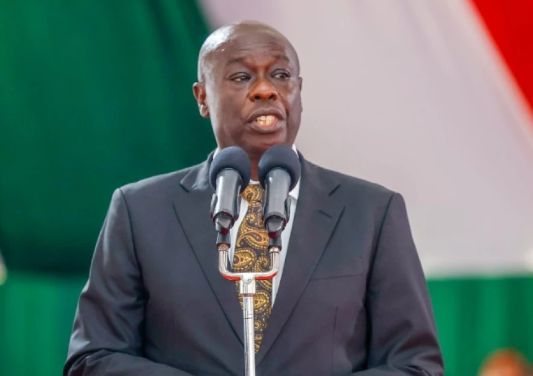Since his departure from office, Gachagua has become a darling of many Kenyans, receiving rousing receptions wherever he goes, whether in churches, funerals, or even over the phone when asked to speak to his supporters.
Similar to the biblical story of Saul’s conversion on his way to Damascus, Gachagua seems to have embraced a new path, drawing many faithful to his side as he delivers his new message.
In his newfound role, Gachagua is passionately advocating for the reduction of taxes, which he argues are burdening Kenyans. “The taxation burden is too heavy on the people, it needs to be lifted,” he says.
However, just months ago, when the government was pushing for the introduction of the 3% housing levy and increasing the VAT from 8% to 16%, Gachagua was at the forefront of supporting the Finance Bill 2023, frequently dismissing opposition to the proposals.
“If we don’t collect taxes, there will be no development. Even if you oppose the bill, it will pass. You don’t have the numbers,” he stated in June 2023.
Now, his position seems to have dramatically shifted. “Mr. President, don’t overtax the people.
You are killing them. You are killing their businesses,” he remarked in October 2024, signaling his sharp criticism of the very policies he once defended.
Another striking example of Gachagua’s evolving stance is his change of heart on the Affordable Housing project, which he once fervently supported.
As part of the Kenya Kwanza administration, Gachagua was a vocal advocate, even urging President Ruto to disregard opposition and push forward with the plan.
“Affordable housing is about solving slum issues,” he said in May 2023. “Why would anyone have a problem with affordable housing for Kenyans to live in dignity?”
Fast forward to November 2024, and Gachagua’s perspective has shifted. “People don’t want the housing program; they want roads, water, and electricity.
They should be able to build their own houses,” he said, criticizing the initiative he once championed. He added that those around the president were sycophants, not giving him the full picture.
Gachagua has also reevaluated his stance on healthcare, particularly the transition from the Social Health Insurance Fund (SHA) to the new “Taifa Care” system.
Previously, he had supported the SHA initiative, calling it a critical step in preventing diseases in the future.
But now, he has voiced concerns about the system, aligning himself with opposition to some aspects of the health program.
With about two and a half years to go until the next general election, it’s clear that Gachagua’s new approach will continue to unfold.
As he positions himself as a man “led by the people,” more surprises and bold statements are likely to come, further complicating the political landscape.



